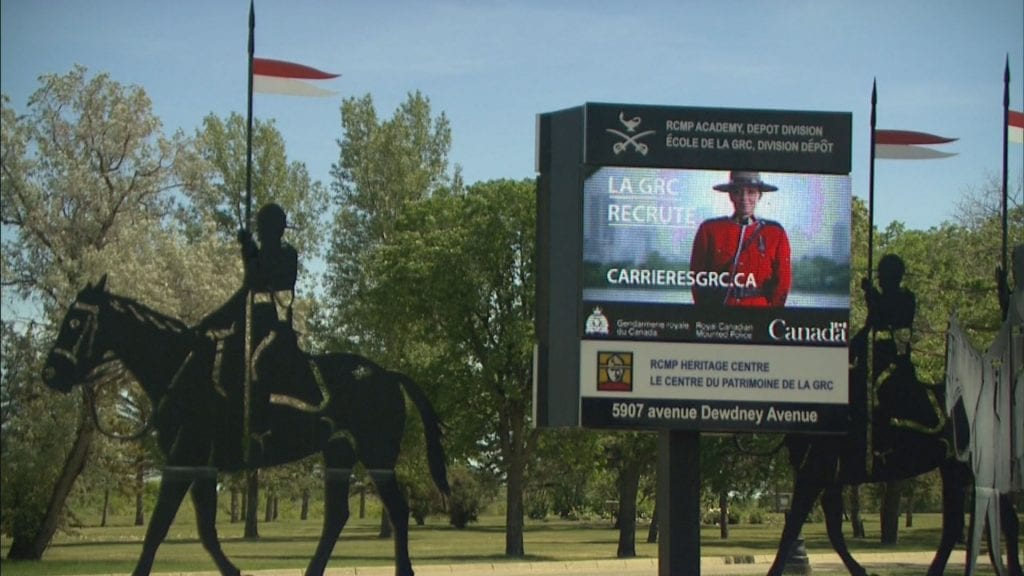
Margorie Hudson experienced racism almost immediately after joining the force in 1979.
“They said I should be happy because they hired me, and I was an Indian. I should be happy with the job that I had because they would not have accepted me in any other regard,” she said in an interview with APTN News in July.
The first Indigenous woman in Manitoba to become a Mountie, Hudson worked in the force for over three decades.
Two years ago, she was part of a sexual discrimination class action against the RCMP. It was certified in January 2017 and settled three months later for $100 million.
In July, Hudson filed a new class action lawsuit against the RCMP alleging systemic racism and discrimination.
She said the racism is still happening and it is time for other Indigenous members who experienced racism to come forward.
“That native people were weaker, that we’re second class. That’s how I felt when I was in the RCMP — that’s how they treated me so that’s how I felt,” said Hudson.
Another former officer also experienced systemic racism inside the RCMP.
Steve Gloade spent 26 years in the force.
He said Indigenous officers were expected to fail.
“But in particular First Nations officers; you know, we had to work twice as hard to be considered equal and you had to do that because you had these built-in barriers of how people see that,” said Gloade.
Gloade was the first commissioned Mi’kmaw officer from Nova Scotia in charge of Indigenous policing and finished his career with the RCMP in Saskatchewan as an inspector.
Gloade said he experienced systemic racism his entire career, and that Indigenous policing was an afterthought.
“They don’t even know, like they devalue — they devalue the position tied to Aboriginal policing because you know what, it’s just Indians policing Indians,” said Gloade.
The needs of Indigenous communities and the differences between First Nations were ignored.
“I’m Mi’kmaw, I’m not Cree, I’m not Saulteaux, I’m not Dene, but yet to come out here and to be in charge of Aboriginal policing here is truly an honour but at the same time, I’m still an outsider. You know, I had a chance to be a leader in my province for my people and the organization, but to them, they’re just Indians are Indians,” said Gloade.
Gloade said when RCMP Commissioner Brenda Lucki recently struggled with the meaning of systemic racism it was “a typical slap in the face, because she had to look up the definition. That shows it does exist.”
Lucki admitted systemic racism existed within the force when she testified at the House of Commons Public Safety Committee on June 23.
“I have widened my lens and changed my perspective in the sense that there is systemic racism in the RCMP,” she said, after having previously denied systemic racism exited within the force.
Naiomi Metallic, a Mi’kmaw lawyer and professor, said the severity of racism is not recognized by the RCMP.
“There’s clearly deep deep-seated views held by individual officers, retired officers, and I think that translates into you know just a culture at the RCMP that really needs to be addressed by leadership,” she told APTN.
The RCMP was created in 1873 to clear the way for colonial settlement.
For example, Mounties took children from families to residential schools and enforced the pass system.
Metallic said the history explains the deep mistrust — a history all RCMP members should be aware of.
“Having no idea of this history, you know, eating up the misconceptions and stereotypes like Indigenous people just get handouts, you know, they’re all drunks, they don’t work. All of this being without any idea of that history and sort of operating from just a deep, deep well of ignorance is just a recipe for disaster,” she said.
Systemic racism in the RCMP has become an election issue in New Brunswick.
First Nations leaders are calling for an Indigenous led provincial inquiry after the police shooting deaths of Chantel Moore and Rodney Levi last June.
In both cases, officers were called for a wellness check. The shooting sparked outrage and calls for action into systemic racism in policing.
Premier Blane Higgs has maintained an inquiry into policing is a federal matter.
The three opposition party leaders disagree.
Ballots are cast on Sept. 14, and voters will choose if systemic racism will impact a provincial election.
“They’re not new issues, these have been going on for years, but nobody cares enough to make a difference in those positions, to make change, and I mean serious difference,” said Gloade.










